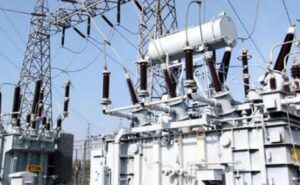How National Grid Faces 105 Collapses in a Decade Despite $1.4bn in Loans
How National Grid Faces 105 Collapses in a Decade Despite $1.4bn in Loans

Government struggles to utilize $2.96bn in World Bank-approved loans for electricity infrastructure.
Under Buhari’s tenure, there were 93 collapses; Tinubu has seen 12, raising alarms for NERC and consumers alike.
Despite substantial investment in the power sector, Nigeria’s national grid has collapsed approximately 105 times during the administrations of Presidents Bola Tinubu and Muhammadu Buhari, according to reports.
Recent findings reveal that Nigeria has obtained 10 loans totaling $4.36 billion from the World Bank over the last ten years aimed at addressing critical power sector issues. Although not all funds have been fully disbursed, the Federal Government and other international partners have injected significant financial resources into revitalizing the power industry.
Despite these efforts, the sector continues to experience frequent collapses, leading to widespread blackouts across the nation. Both Tinubu and Buhari, members of the All Progressives Congress, had pledged to improve the situation, but challenges have persisted since Buhari’s administration took over from former President Goodluck Jonathan.
Data from sources, including the Nigerian Electricity Regulatory Commission (NERC), indicates that the grid collapsed around 93 times from June 2015 to May 2023 during Buhari’s eight-year term. The grid, a complex network of transmission lines, is designed to operate within specific voltage and frequency limits. Any deviation can degrade power quality and, in severe cases, lead to extensive outages.
When electricity demand exceeds supply, it causes frequency drops. Conversely, excess supply leads to frequency increases, which can trigger safety mechanisms in generation units, resulting in shutdowns and further imbalance.
The impact of grid failures is severe, leaving many consumers in darkness and disrupting business operations. Under Buhari, the grid collapsed three times in 2015, 28 times in 2016, 24 times in 2017, 13 times in 2018, and 11 times in 2019. While frequency stability improved from 2020 to 2023, with only 14 collapses during that period, the Tinubu administration has recorded at least 12 collapses in just 16 months.
Notably, on September 14, 2023, a fire on a major transmission line caused another significant outage. Following this, a third collapse occurred in less than a week, highlighting ongoing vulnerabilities within the national grid.
World Bank Loans Overview
Over the past decade, Nigeria has secured 10 loans worth $4.36 billion from the World Bank to tackle power sector challenges. These loans are intended for infrastructure development and renewable energy initiatives but remain at various stages of disbursement.
While some loans are actively releasing funds, significant amounts are still undrawn, and one loan approved in 2014 has been cancelled. Currently, Nigeria is repaying three of the five loans that are disbursing funds, reflecting the ongoing effort to balance loan obligations with infrastructure investments.
Since assuming office in May 2023, President Tinubu’s administration has made significant strides in securing new loans, including $750 million for the Nigeria Distributed Access through Renewable Energy Scale-up Project, aimed at enhancing renewable energy capacity.
Despite these financial efforts, the power sector continues to face challenges such as low electricity access and frequent outages, particularly in rural areas, negatively impacting businesses and everyday life.
Consumers are voicing their frustrations, especially those on estimated billing, feeling they pay for nonexistent services. Advocacy groups are urging regulatory bodies to better protect consumer rights and address the poor quality of power infrastructure.
Residents in several areas have called for accountability from those managing the grid, emphasizing the need for more robust oversight and improvements in the power supply system. As the government navigates these challenges, the state of Nigeria’s electricity infrastructure remains a pressing concern.
The International Energy Agency has pointed to aging infrastructure and vandalism as contributing factors to ongoing grid issues, which continue to force many households and businesses to rely on backup generators.
In 2023, mechanical outages were the primary cause of power plant unavailability, which underscores the urgent need for infrastructure overhaul and effective maintenance practices.
To improve grid reliability, stakeholders are encouraged to implement strategic measures that can help stabilize operations and prevent future collapses.
TRENDING SONGS
 Ahmad Yerima: Naval Officer to Face No Sanctions After Clash with Wike – Matawalle
Ahmad Yerima: Naval Officer to Face No Sanctions After Clash with Wike – Matawalle
 Trending Video: Muslim Man Joins Wife in Hallelujah Challenge ‘Dress Like Your Miracle’ Night
Trending Video: Muslim Man Joins Wife in Hallelujah Challenge ‘Dress Like Your Miracle’ Night
 Woman Seeks Advice as Late Brother’s Wife Refuses to Mourn Him Following His Death With Alleged Mistress
Woman Seeks Advice as Late Brother’s Wife Refuses to Mourn Him Following His Death With Alleged Mistress
 Nobody Cares About Fine Girls In The UK, I Miss Nigeria — Nigerian Lady Laments
Nobody Cares About Fine Girls In The UK, I Miss Nigeria — Nigerian Lady Laments
 Wedding Called Off: How Lady Cancels Wedding After Finding Out Finance’s Affairs With Her Bestie
Wedding Called Off: How Lady Cancels Wedding After Finding Out Finance’s Affairs With Her Bestie
 Heartbreak in Ikeja: Lady Weeps After Fufu Found in New Phone Package
Heartbreak in Ikeja: Lady Weeps After Fufu Found in New Phone Package
 Twist of Fate: Man Who Questioned Phyna’s ₦1Billion Demand Mourns Brother in Dangote Truck Crash
Twist of Fate: Man Who Questioned Phyna’s ₦1Billion Demand Mourns Brother in Dangote Truck Crash
 Tragedy in Enugu: Dangote Truck Claims Lives of Family of Five
Tragedy in Enugu: Dangote Truck Claims Lives of Family of Five
 Bangkok Crackdown: Nigerian-Thai Couple in Police Net Over Drug Trafficking
Bangkok Crackdown: Nigerian-Thai Couple in Police Net Over Drug Trafficking
 Family Rift: Reno Omokri’s Ex-Wife Says He Deserted Their Special Needs Son
Family Rift: Reno Omokri’s Ex-Wife Says He Deserted Their Special Needs Son
Share this post with your friends on ![]()













